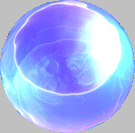English 337a - Introduction to Literary Theory: Narrative and the Ends of Theory (graduate seminar)
Using the interdisciplinary question of narrative as an organizing motif, the course explores the value and function of theory today. At a time when many in the academy are asking whether theory is dead, students must confront the continuing necessity of being well versed in the major theoretical positions of the past thirty years.
Narrative studies provides an ideal testing ground for assessing the changing role of theory not only in literary criticism but also in the many other fields where narrative remains an important locus of inquiry: cultural studies, gender studies, film, anthropology, history, law, and medicine.
Readings will range across classic and contemporary narrative theory, including formalist and structuralist approaches to narratology; poststructuralist deconstructions by Jacques Derrida and Roland Barthes; psychoanalytic inquires by Jacques Lacan, Peter Brooks, and Shoshana Felman; feminist theories of narrative by Nancy K. Miller, Rachel Blau Duplessis, Margaret Homans, and Susan Stanford Friedman; queer theory and gender studies approaches by D. A. Miller and Eve K. Sedgwick; and investigations of particular topics such as Edward Said on beginnings, Frank Kermode on endings, Gerard Genette and Paul Ricoeur on temporality, Hayden White on history, and Francois Lyotard on narrative pragmatics.
English 337a - Introduction to Literary Theory: Postmodernism, Gender Theory, Cultural Studies (graduate seminar)
This course in contemporary literary theory introduces some of the principal methods of current criticism, ranging from deconstruction to psychoanalysis, from performance theory to gender and cultural studies. Critical works will be placed in the context of postmodern culture, hypertext theory, and cyberspace. Ridley Scott's film Blade Runner and Shelley Jackson's Patchwork Girl, a hypertext reworking of the Frankenstein story, will serve as reference points for the exploration of theoretical issues.
Readings include representative works by Louis Althusser, Lauren Berlant, Roland Barthes, Judith Butler, Helene Cixous, Jacques Derrida, Michel Foucault, Paul Gilroy, Donna Haraway, Fredric Jameson, Jacques Lacan, Ferdinand de Saussure, Patricia Williams, Slavoj Zizek, and others.
 English
337a - Introduction to Literary Theory: Deconstruction, Gender Studies,
Cultural Studies (graduate seminar)
English
337a - Introduction to Literary Theory: Deconstruction, Gender Studies,
Cultural Studies (graduate seminar)An earlier version of the above.
| Jay Clayton |
|
last updated 8/29/03